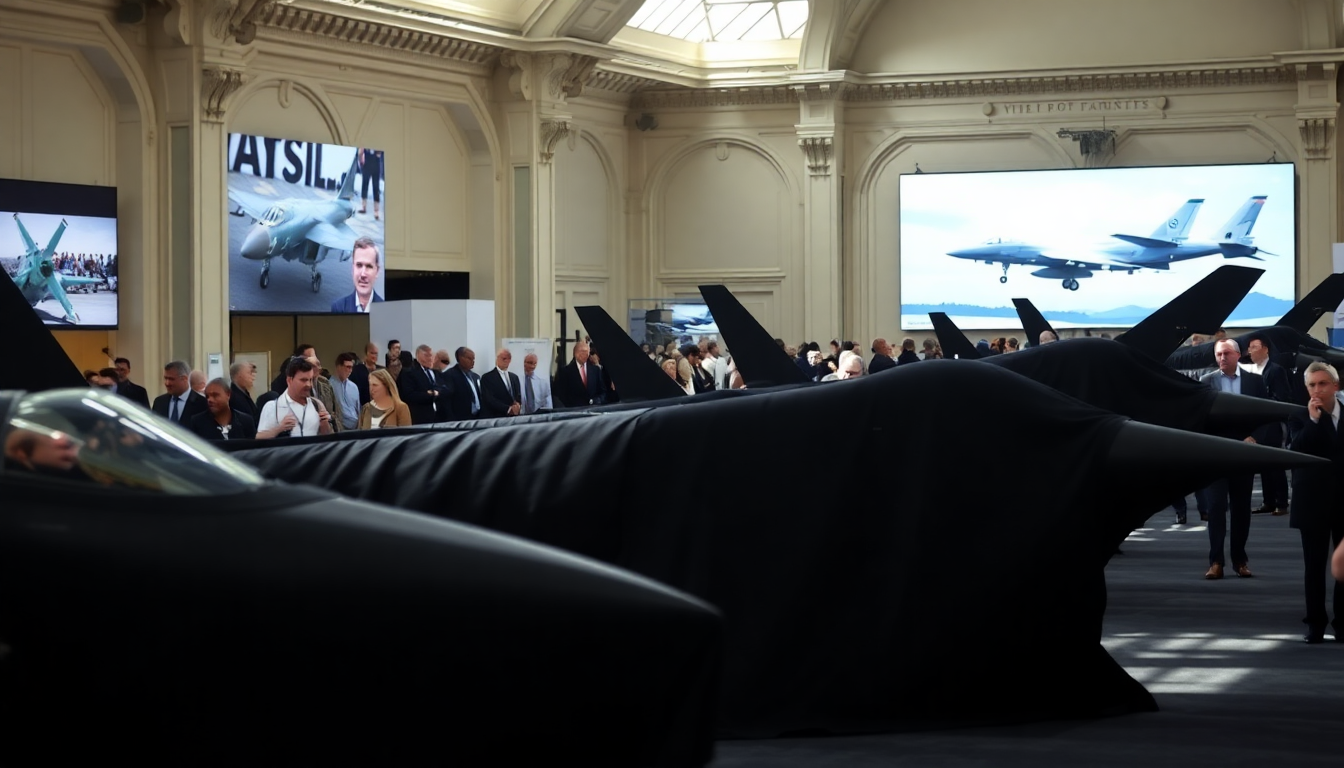Table of Contents
In a world where political tensions seem to be the norm, Israel has taken the opportunity to express its outrage over France’s recent decision to shroud displays of Israeli offensive weapons at the Paris Air Show. This isn’t just a minor spat; it’s a clash that exposes the underbelly of international relations, where military might and political maneuvering tango in a grotesque display of rivalry.
France’s controversial request
The Paris Air Show, renowned for showcasing cutting-edge aerospace and defense technology, has become a battleground of sorts. At the request of the French government, organizers obscured the Israeli booths with black panels after Israel’s defense ministry flatly rejected a ban on showcasing offensive military equipment. So, what’s the real story here? Is it about politics, or is it merely a facade for commercial interests? According to the Israeli defense ministry, this decision reeks of a deliberate attempt to sideline Israel, claiming it’s a thinly veiled strategy to protect French industries from competition.
Context of the conflict
As tensions rise between Israel and Iran, alongside the ongoing conflict in Gaza, the timing of France’s request seems to add fuel to the fire. Critics argue that Israel’s military actions in Gaza, which have drawn accusations of war crimes, have created a political climate where such decisions can be justified. However, it’s worth noting that a French court recently dismissed calls from NGOs to ban Israeli companies from the air show, citing lack of legal grounds. Does this mean the French government is playing both sides, or is it simply trying to navigate a complex geopolitical landscape?
The fallout from the decision
The fallout is palpable, with only four out of nine Israeli exhibitors complying with the French regulations. The remaining five, including prominent companies like Elbit and Israel Aerospace Industries, have chosen to stand their ground, refusing to back down. One must wonder: is this a show of defiance or a desperate grasp for relevance in a world that increasingly views such military displays with skepticism? A French official stated that these companies would be welcomed once they adhered to the rules, but the underlying tension remains.
Strained relations
The diplomatic relationship between France and Israel is becoming more strained by the day. It’s almost laughable how both nations, once allies, are now locked in a snarling duel over who gets to show off their military hardware. Is it really about the weapons, or is it a deeper commentary on how the world views military power? As the Israeli ambassador to France supposedly accepted the rules, one can’t help but think that the reality is far more complicated than these superficial agreements suggest.
Looking ahead
As we watch this drama unfold, it’s essential to consider the broader implications. The humanitarian crisis in Gaza continues to escalate, with the Israeli military facing increasing scrutiny over its actions. Meanwhile, leaders from various nations are gearing up to discuss a new defense spending target, potentially driving home the point that military might is still the ultimate trump card in international relations. Is this endless cycle of military posturing and political maneuvering ever going to change? Or are we destined to watch the same tired script play out, with new actors stepping into old roles?
In the end, while the Paris Air Show might seem like just another exhibition of military prowess, it’s clear that the stakes are far higher. The world is watching, and the question remains: what will it take for nations to move beyond showmanship and truly address the crises that plague our global community?


